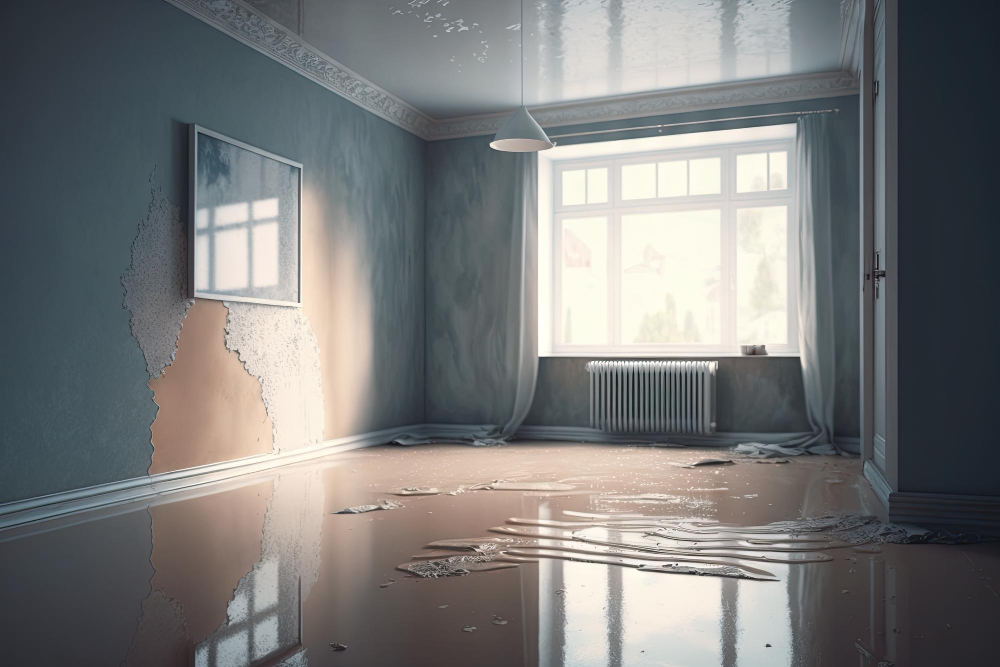 (888) 979-7969
(888) 979-7969
 (888) 979-7969
(888) 979-7969

Water damage can be devastating to any homeowner. Whether it is from a leaky ceiling or a flooded basement, water damage should be addressed immediately. If left untreated, it can cause serious structural damage to your home and pose health hazards. If you have water damage in your home, it is important to act fast and take the necessary steps to prevent further damage. In this blog post, we will discuss the essential things you should do when you have water damage in your home.
The first step in addressing water damage is to find out the source of the problem. Check for leaks in your roof, ceiling, walls, or pipes. Once you have determined the source, assess the damage to determine how much water has accumulated and which areas of your home have been affected. This information is useful for insurance purposes and can help restoration professionals assess the scope of the damage and determine the necessary course of action.
Once you have assessed the damage and located the source of the problem, it is important to turn off the water supply to prevent further damage. Shut off the main water valve to your home or the valve that controls the water flow to the damaged area. If you are unable to turn off the water supply, contact a licensed plumber for assistance.
Documentation is essential when dealing with water damage. Take photos and videos of the affected areas to provide evidence for insurance claims. Keep all receipts and invoices for any repair work or restoration that you have to do. This will help you to claim any applicable insurance reimbursements for the cost of the repairs.
After documenting the damage, contact a professional restoration company. These professionals can assess the scope of the damage, dry out the affected areas, and restore your home to its pre-loss condition. Their expertise can help you avoid costly mistakes and ensure that your property is restored quickly and safely.
Your insurance provider needs to be notified as soon as possible. Your policy may cover the cost of restoration, and they need to be involved in the process to avoid delays in reimbursements. Provide them with the documentation you have gathered and the details of the damage.
Water damage is a serious concern that requires immediate attention. The steps outlined in this blog post are essential to minimizing the damage and restoring your home to its pre-loss condition. Consulting with a reputable restoration company and your insurance provider can help ensure the success of the restoration process. If you need an insurance claims adjuster in Orlando, FL, for your water-related damage, contact Ultra Property Damage today for a free consultation. Act fast and prevent further damage to your home.